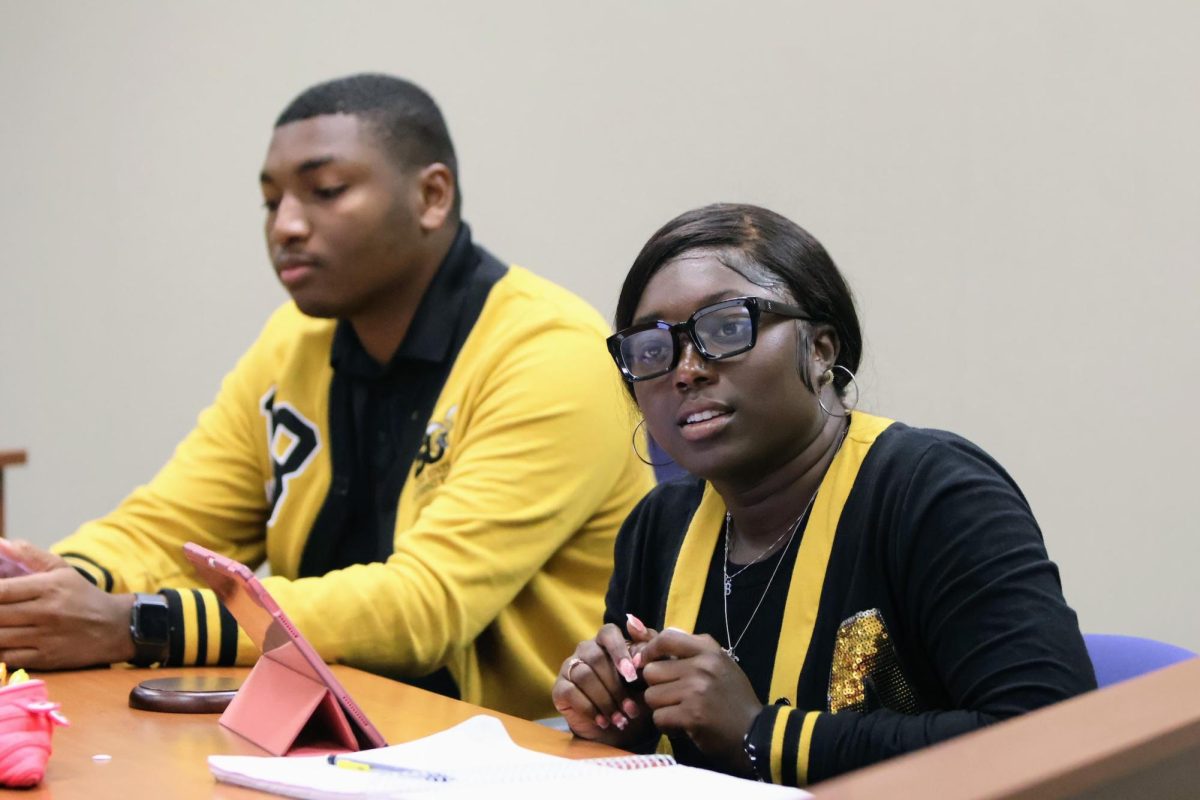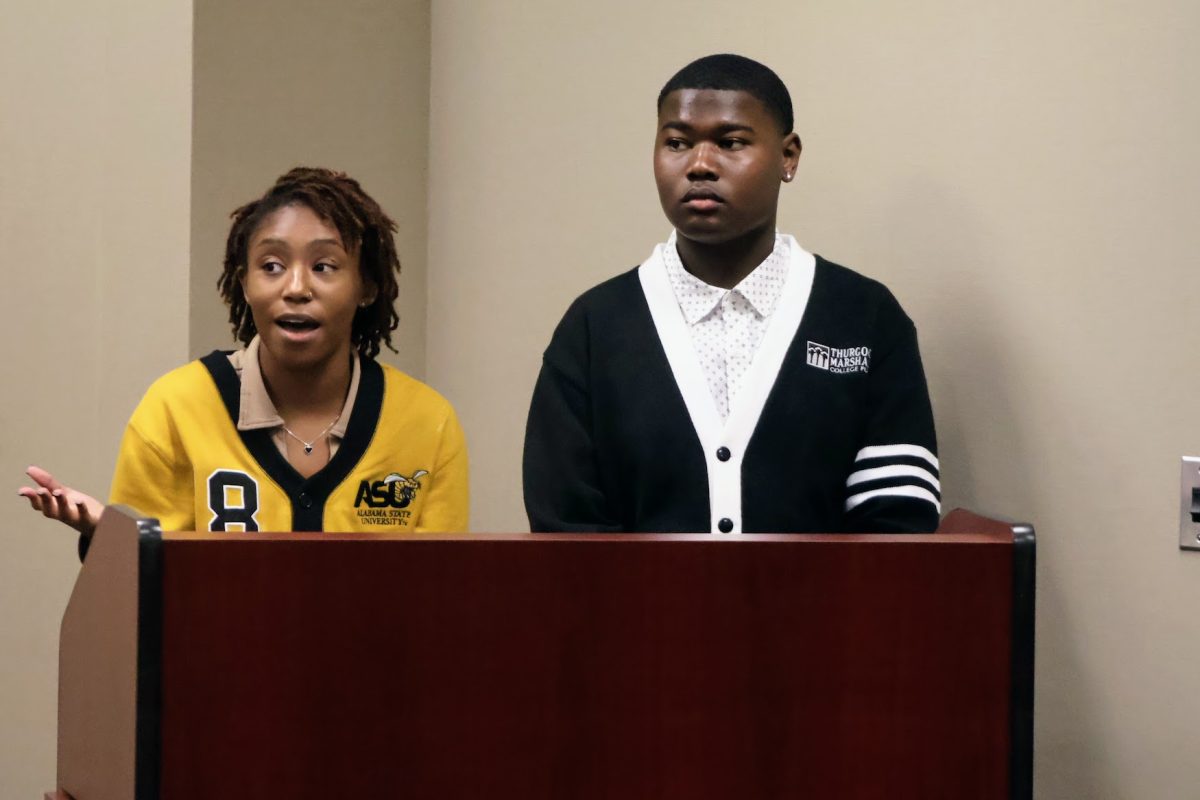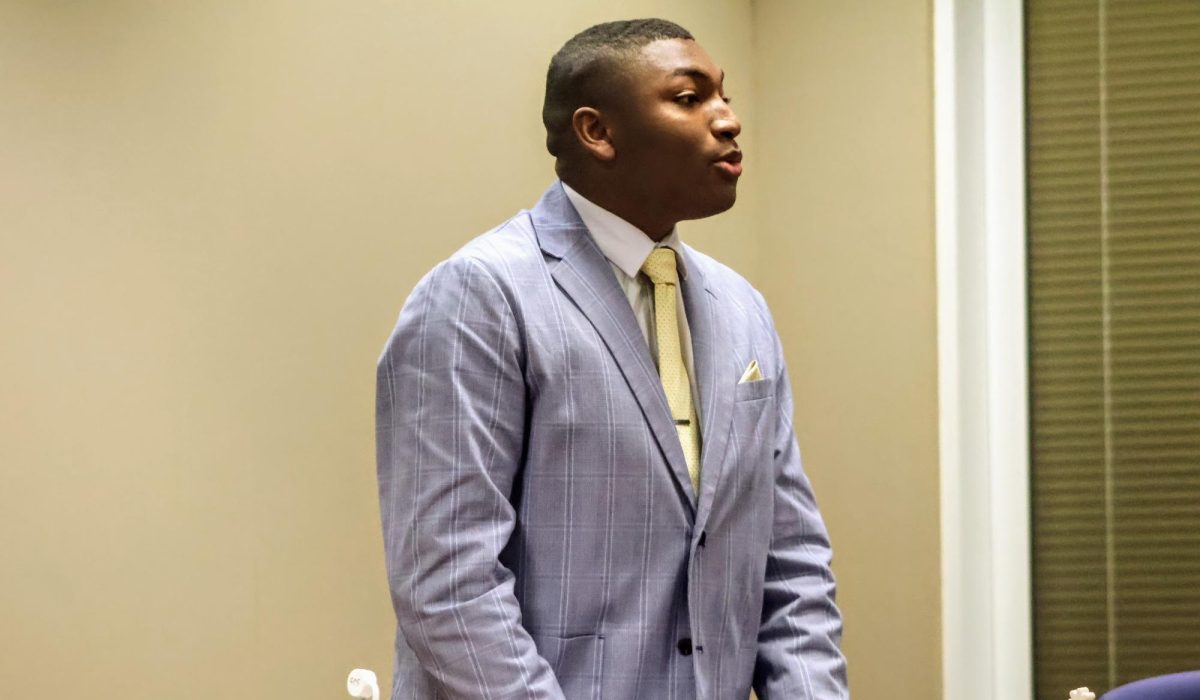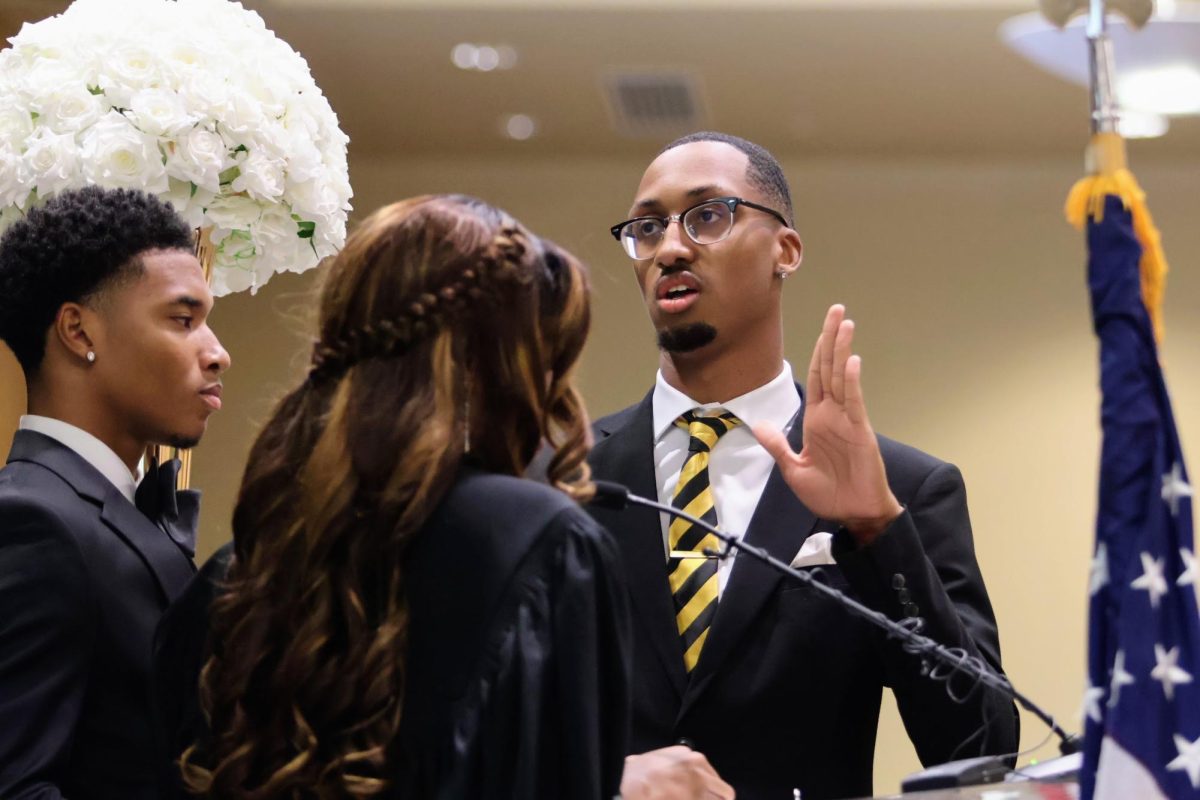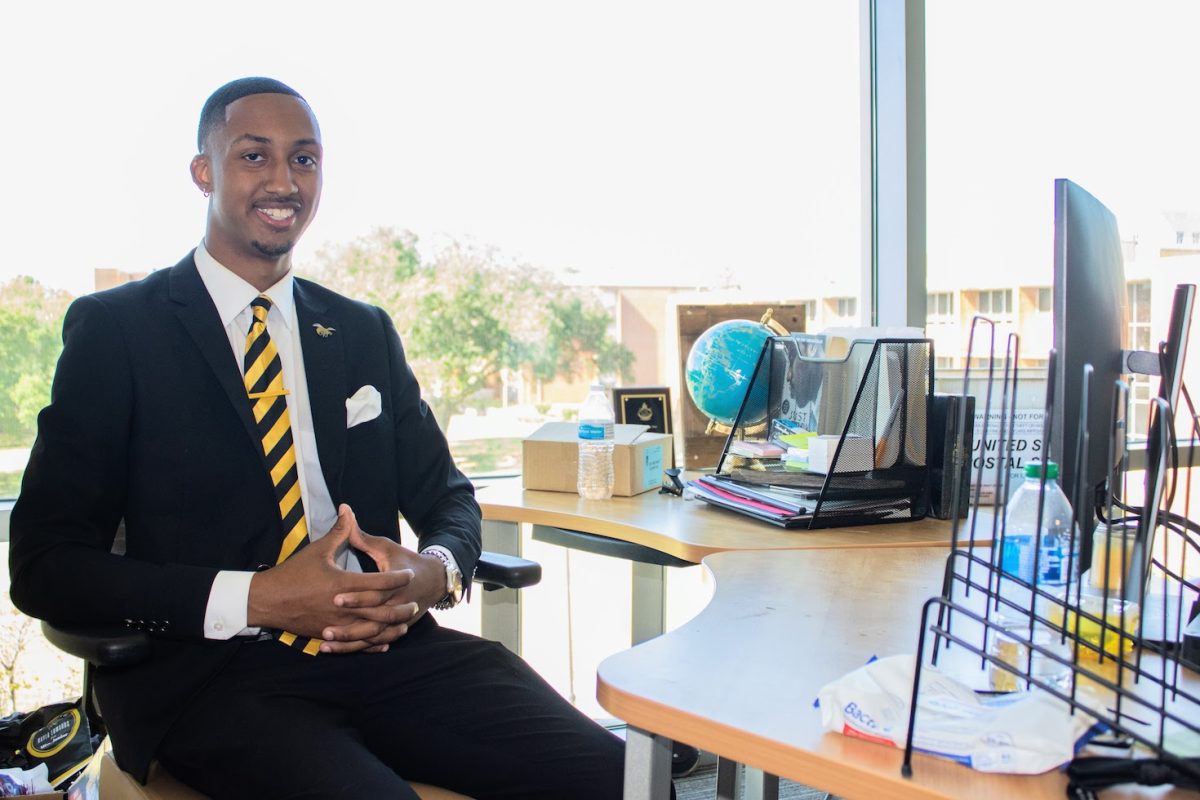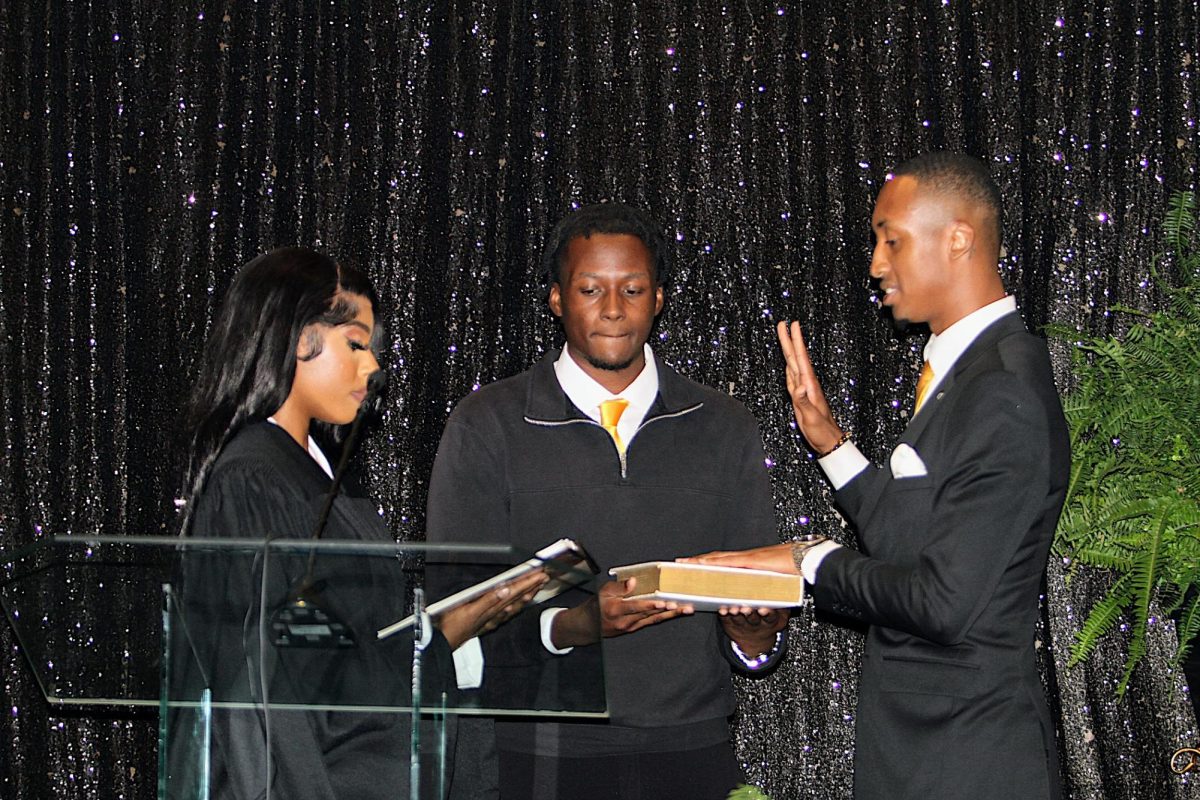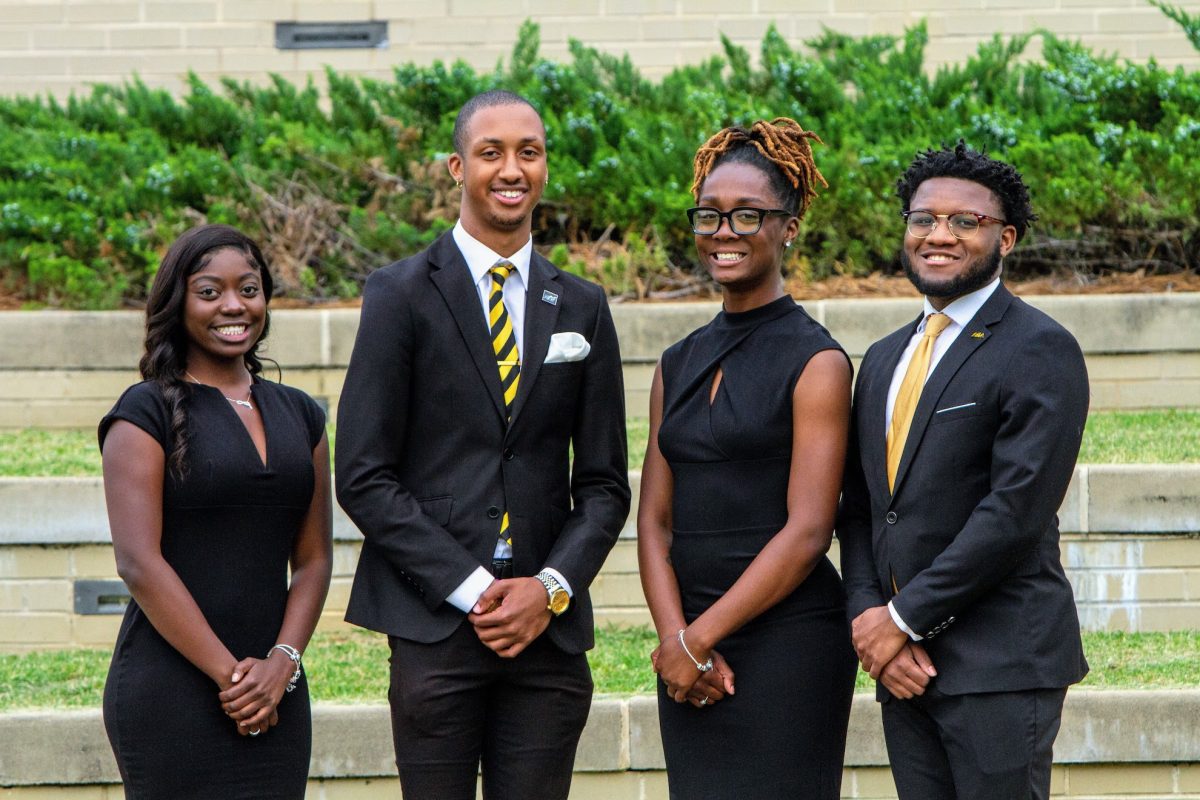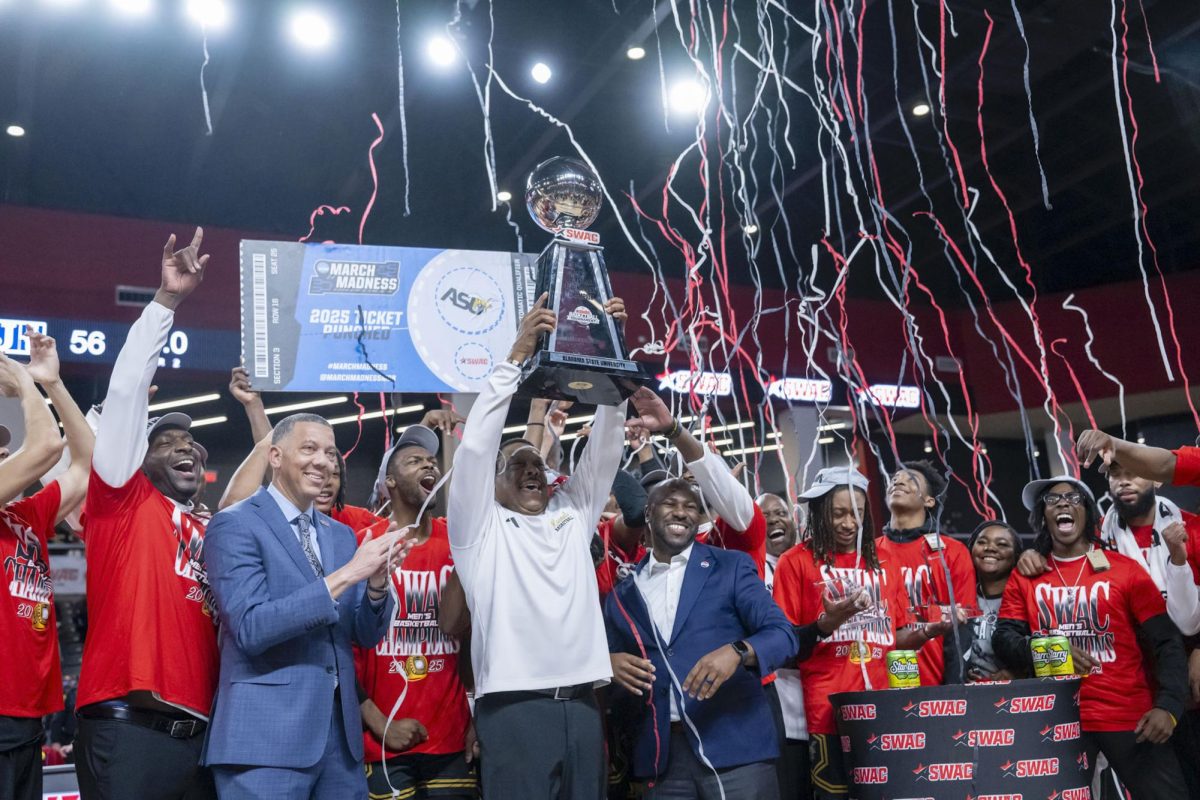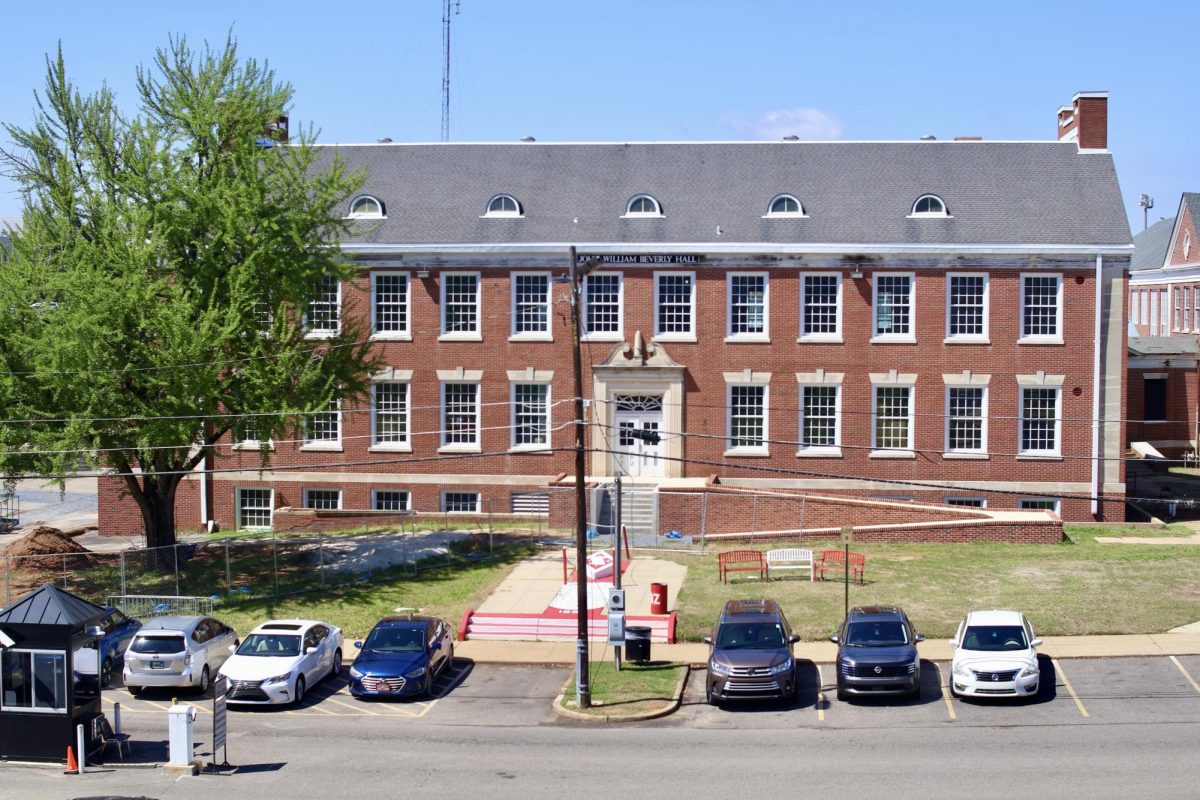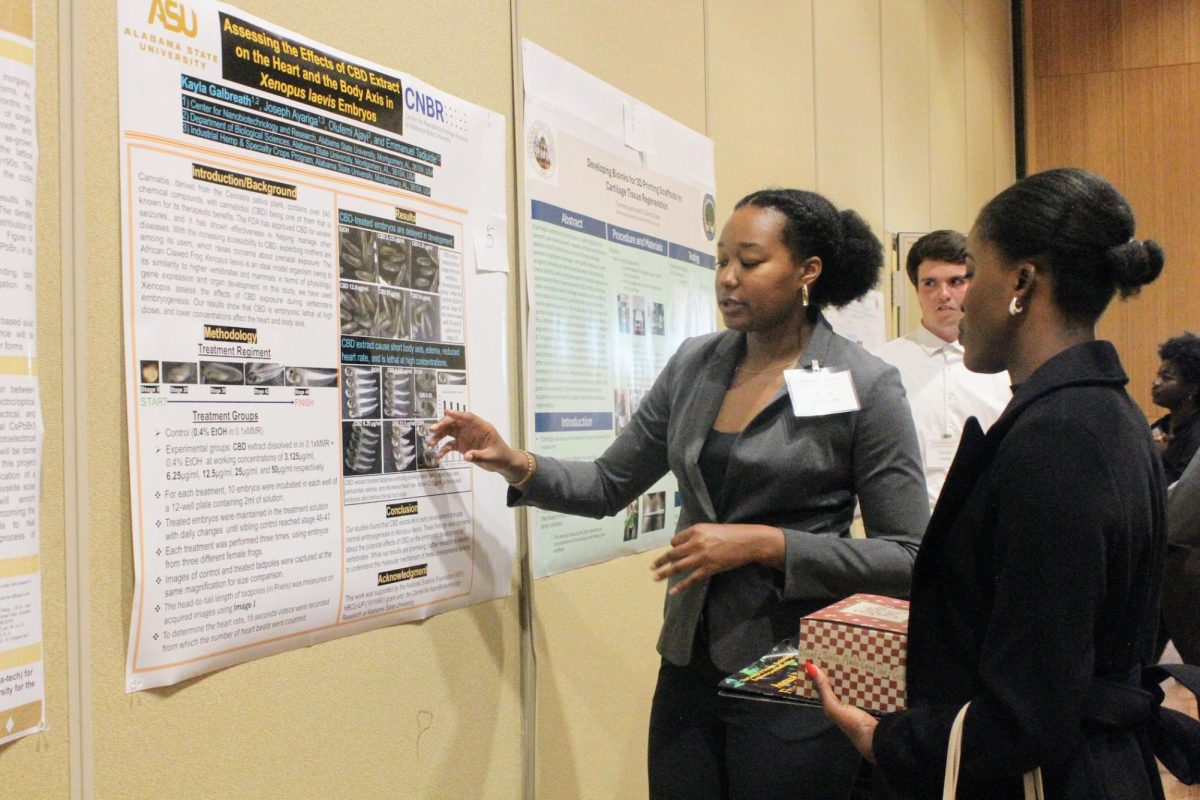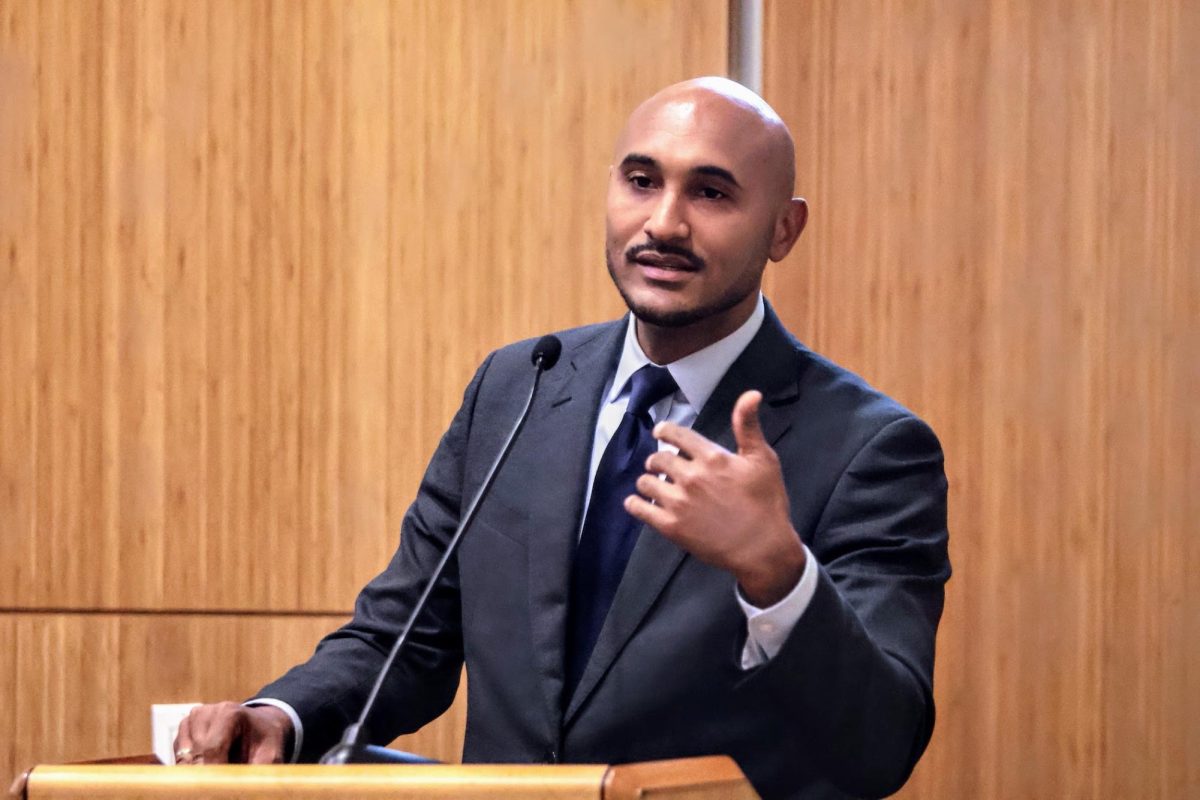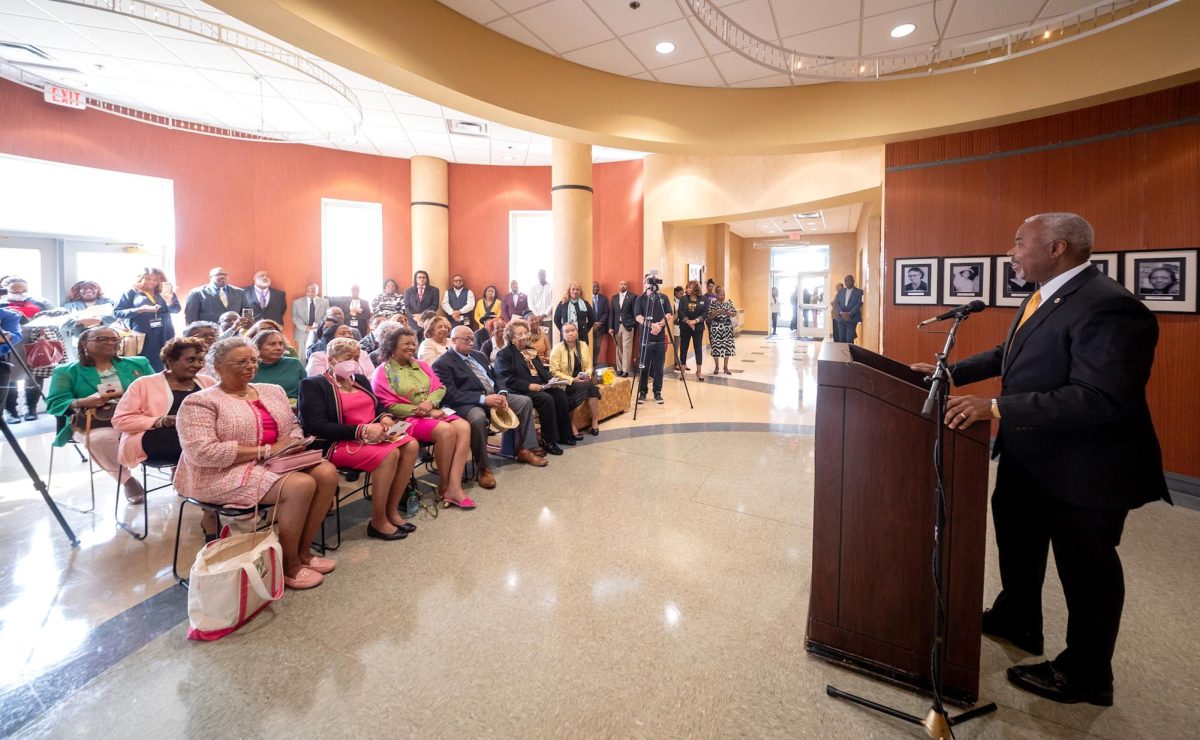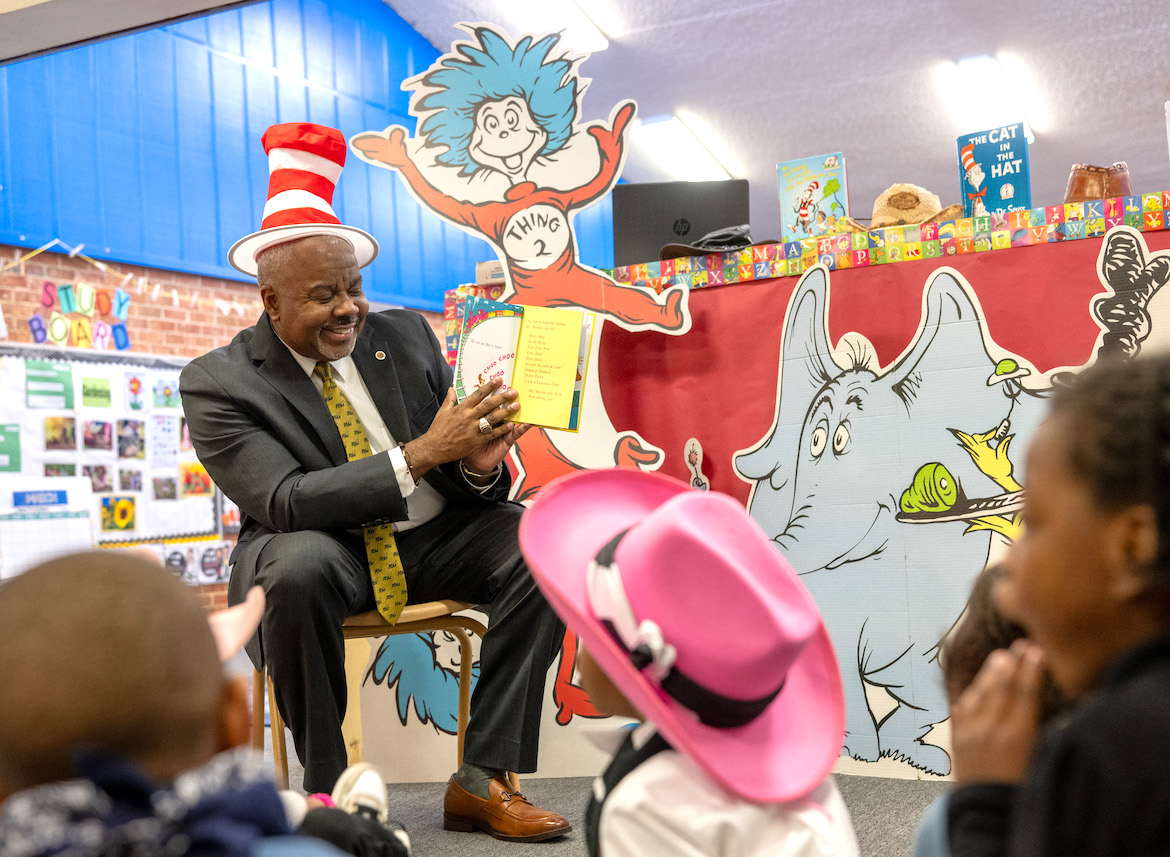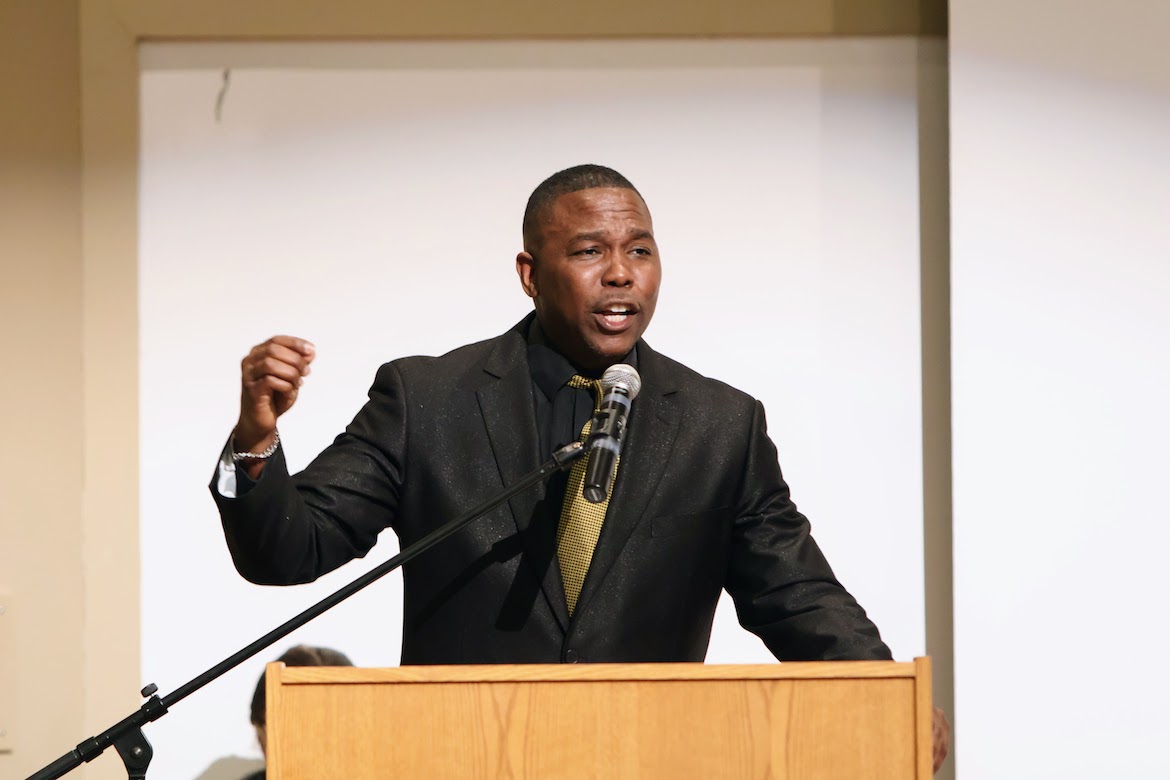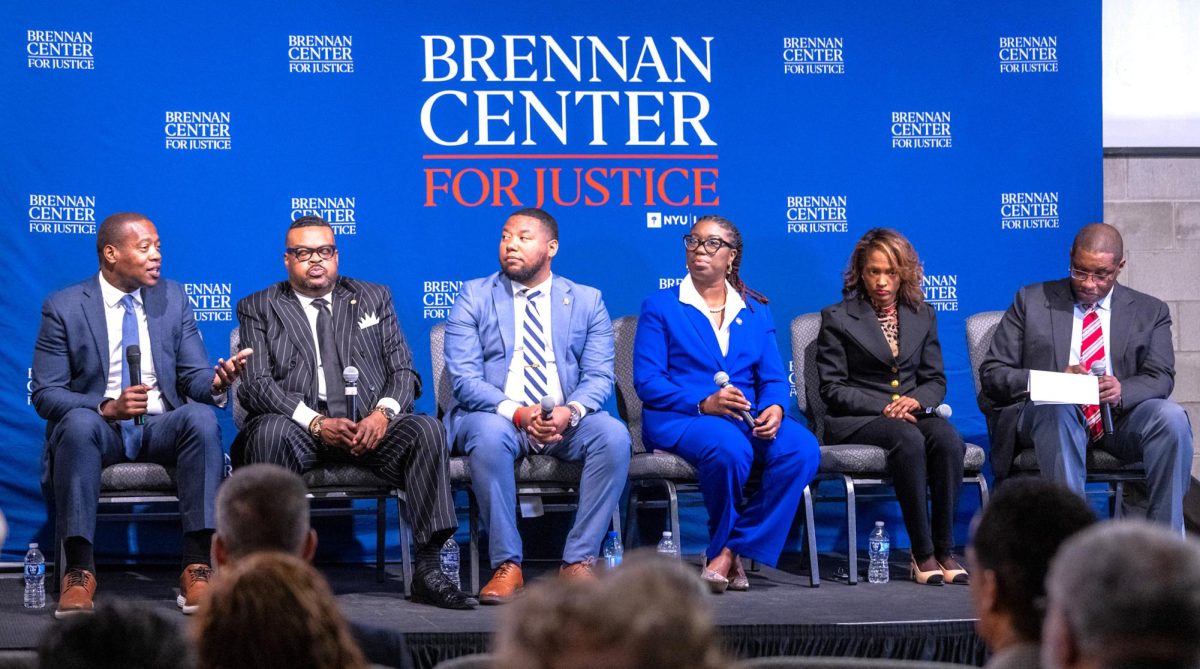The Student Government Association (SGA) Senate gathered in the Mock Courtroom of Hatch Hall on Nov. 6 for its senate meeting. Sen. Vice President Kameelah Freeman called the meeting to order at 6:14 p.m., with Secretary Jaden Williams conducting the roll call. Senators from the College of Visual and Performing Arts, the College of Business Administration, and University College were among those present.
After swiftly approving the agenda and minutes from the previous meeting without debate, the Senate transitioned into reports from committees, including Academic Affairs, Technology, Student Affairs, and Budget and Finance.
Sen. Shantise Pearson introduced a groundbreaking resolution to expand opportunities for social science students beyond their undergraduate studies. The resolution passed unanimously.
Explaining her motivations, Pearson shared, “I feel as though the students within my college were not being represented properly, and I felt like our academic advisers and professors can do a better job at showcasing those disciplines. The purpose of this resolution is to expose students in the College of Liberal Arts and Social Sciences to nonprofit organizations dedicated to the discipline of their choice,” Pearson said.
Pearson highlighted the need for stronger academic support and career exposure.
“My resolution idea originally came from the idea that a lot of my peers, and I felt unprepared as far as experience,” Pearson said. “The university could do a better job with its instructors, and professors and do a better job at exposing us to different areas of studies and careers.”
She also acknowledged funding limitations.
“The conflict that we had was the budget,” Pearson said. “The college doesn’t have a budget, so we came up with the idea of a travel budget strictly for the College of Liberal Arts and Social Sciences.”
Pearson also expressed optimism about the resolution’s long-term impact.
“I’m really hoping that the resolution after I graduate can help students who are in positions like myself to better align themselves with their career paths and make sure that we are aware of the possibilities and outcomes of our studies,” she said.
Sen. A’Vandia Fedd presented a resolution advocating for the inclusion of international food options in the Fred Shuttlesworth cafeteria, a move that resonated with students’ ongoing concerns about dining variety.
Sharing her efforts, Fedd said, “I’m very happy overall that my resolution was passed. Students are always complaining about our lack of options in the cafeteria, and my resolution will show that we’re putting in the effort to resolve that issue.”
Fedd also revealed that she had consulted with Aramark, the university’s food services provider, which accepts suggestions through Google Forms, a suggestion box or email. Aramark tests new recipes through their headquarters before implementation.
Three resolutions proposed by Sen. Calandrea Carter, including updates to the student handbook, Act II for a global initiative and a culinary initiative, were postponed for further consideration.
Carter reflected on the Senate’s work.
“The Student Government Association Senate is doing its best efforts to progress an innovative, thought-provoking conversation around how we can affect the student body,” she said. “In the future, I feel like we can be more proactive by creating more bills efficiently at the beginning of the school year rather than the last month. However, we are doing the best we can, we’re learning and we’re taking it one step at a time.”
Sen. Joshua Davis introduced a resolution addressing the lack of communication about campus construction after enduring weeks of loud noise above his room. He began his presentation with an audio of construction occurring in his dormitory.
Recalling his experience, Davis said, “I had to deal with that (noise) for about two weeks. I didn’t know who to talk to about it, no one told us when it was going to start and when it was going to end, and that’s unfair to the residents.”
His resolution proposed advanced notice for construction projects.
“I want students to receive notice of all on-campus construction three to seven days before the infrastructure start date,” Davis said. “Administration will send out emails to all Alabama State University students on campus and commuter students. If the construction is immediate or an emergency, the university will have 24 to 28 hours to notify students of the time and location of the construction.”
The resolution was tabled to address specifics, including clarifying the sender of communication emails and adding an expiration date.
Sen. Katelyn Baxter proposed a resolution to encourage internships for freshmen and sophomores majoring in STEM (Science, Technology, Engineering and Mathematics), emphasizing the importance of gaining experience early in their academic journeys.
Explaining the resolution, Baxter said, “My bill directly aligns with BIO 200. It’s a preprofessional health science class that requires students to have an internship; you can’t pass that class without applying for an internship. I can’t promise that y’all (students) will get an internship, but a requirement or incentive will be for a chance to at least apply for an internship.”
The resolution was tabled after some senators questioned how it aligns with the SGA’s role.
Travis Smith, Ph.D., legislative branch adviser said, “The STEM bill is a great bill. I would recommend that the bill be an initiative so that you don’t have to worry about them sitting here questioning the SGA’s responsibility. Their responsibility is promoting and assisting us in brand awareness for STEM.”
Sen. at-large Tyrin Moorer announced the approval of the emergency funding application process, allowing students to request up to $250 for campus projects. Additionally, campus organizations can now apply for up to $2,500 in funding through a similar review process.
Before adjourning, the Senate announced an emergency meeting scheduled for Nov.12, with the time yet to be determined. Smith concluded the session by stressing the importance of adhering to Robert’s Rules of Order during meetings.
“Great meeting and great bills but y’all have to follow Robert’s rules of order, it’s killing me,” Smith said passionately. “When we come back in here in two weeks, I do not want a senator speaking that is misquoting motions, they should be called out of order immediately. You’re never going to be efficient doing that.”
“I am extremely excited about the bills and the work that you guys have put forth in the committee meetings, this is great … Don’t think your bills are going to be perfect when you come here, that’s not how this works.”
The meeting adjourned at 7:05 p.m.


